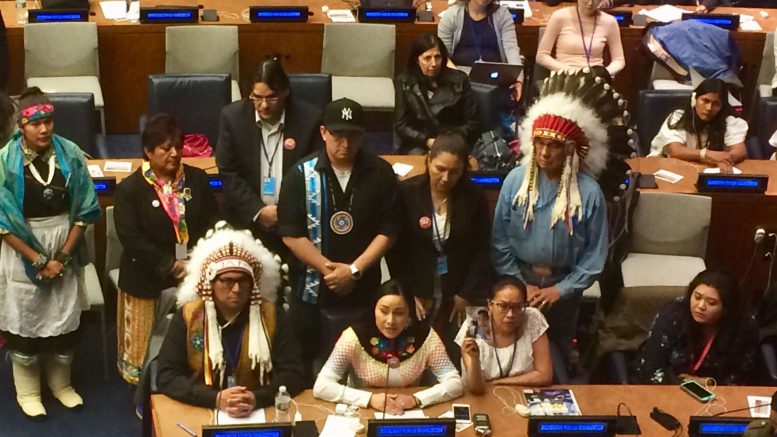By Jeremy Appel, Local Journalism Initiative Reporter
(ANNews) – The Supreme Court of Canada has upheld legislation that put an end to peremptory challenges, a practice in criminal trials where lawyers are able to strike a juror without justification, which Indigenous advocates have called a recipe for discrimination.
Peremptory challenges allowed for an all-white jury in the case of Gerald Stanley, who killed 22-year-old Colten Boushie in 2016 and was acquitted of second-degree murder and manslaughter in 2018, after Stanley’s lawyer convinced the jury that the shot that killed Boushie was accidential.
After the acquittal, Prime Minister Justin Trudeau’s Liberals banned peremptory challenges as a means of promoting more racially-diverse juries in Bill C-75, which contained a broad set of legal reforms.
Chris Murphy, a lawyer representing Colten Boushie’s mother — Debbie Baptiste — at the Supreme Court, said the practice had the effect of stacking the deck of the trial in favour of Stanley’s defence.
“Without any evidence of prejudice, defence counsel challenged each and every one of the five Indigenous jurors,” Murphy said. “Sanctioned discrimination erodes public confidence in our justice system.”
The challenge to the ban wasn’t prompted by the Stanley case, but the first-degree murder trial of Pardeep Chouhan in Brampton, Ont., which had begun the day the ban went into place on Sept. 19, 2019. However, Baptiste was granted intervenor status, given her vested interest in the legislation in question.
Another intervenor in the case — Caitlyn Casper of Aboriginal Legal Services — said the practice clearly inhibits Indigenous people’s full participation in the legal system.
“We have quantifiable real numbers to show that Indigenous people are not being chosen, that they’re not being selected. And that it is regardless of what role we’re playing through that process,” Casper said.
On the other side were lawyers who argued that the prohibition on the practice was overly broad.
Nader Hasan, an intervenor with the Canadian Muslims Lawyers Association and Federation of Asian Canadian Lawyers, acknowledged that peremptory challenges could be abused by racists but argued that it is a useful tool to defend the rights of the accused.
“What parliament should be doing should have been to legislate against the discriminatory use of the peremptory challenge,” said Hasan.
Chouhan’s counsel, Dirk Derstine, argued that peremptory challenges are necessary to ensure a fair trial for racialized people, who “often have people in society who are unwilling to give them a fair shot.”
Boushie’s cousin Jade Tootoosis praised the Supreme Court’s verdict as a small step towards justice.
“It is a victory for my late brother, Colten Boushie, and all those in my family. I am conscious that this is a colonial system that needs to be dismantled all together. We will continue to do the work necessary,” Tootoosis said in a Facebook post.
“But because we’ve lost so many battles in our pursuit for justice, I choose to celebrate this moment, this victory.”
The Ontario Court of Appeal in January also ruled that the government was within its rights to ban peremptory challenges.



Be the first to comment on "Supreme Court upholds ban on peremptory challenges – seen as a victory for racially diverse jury selection"